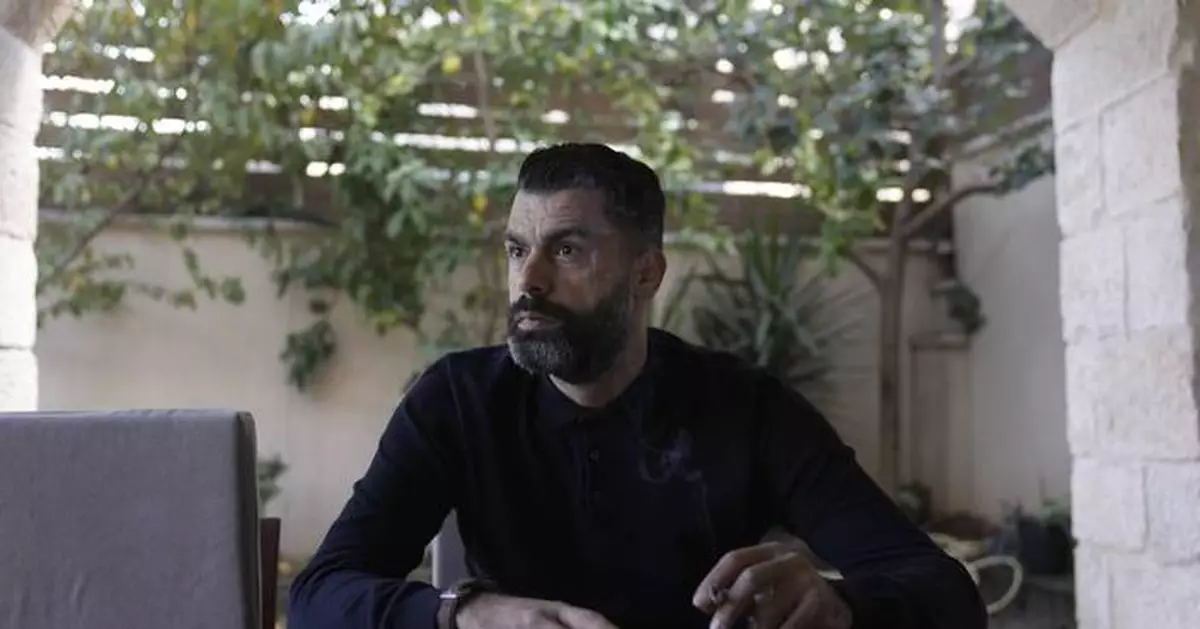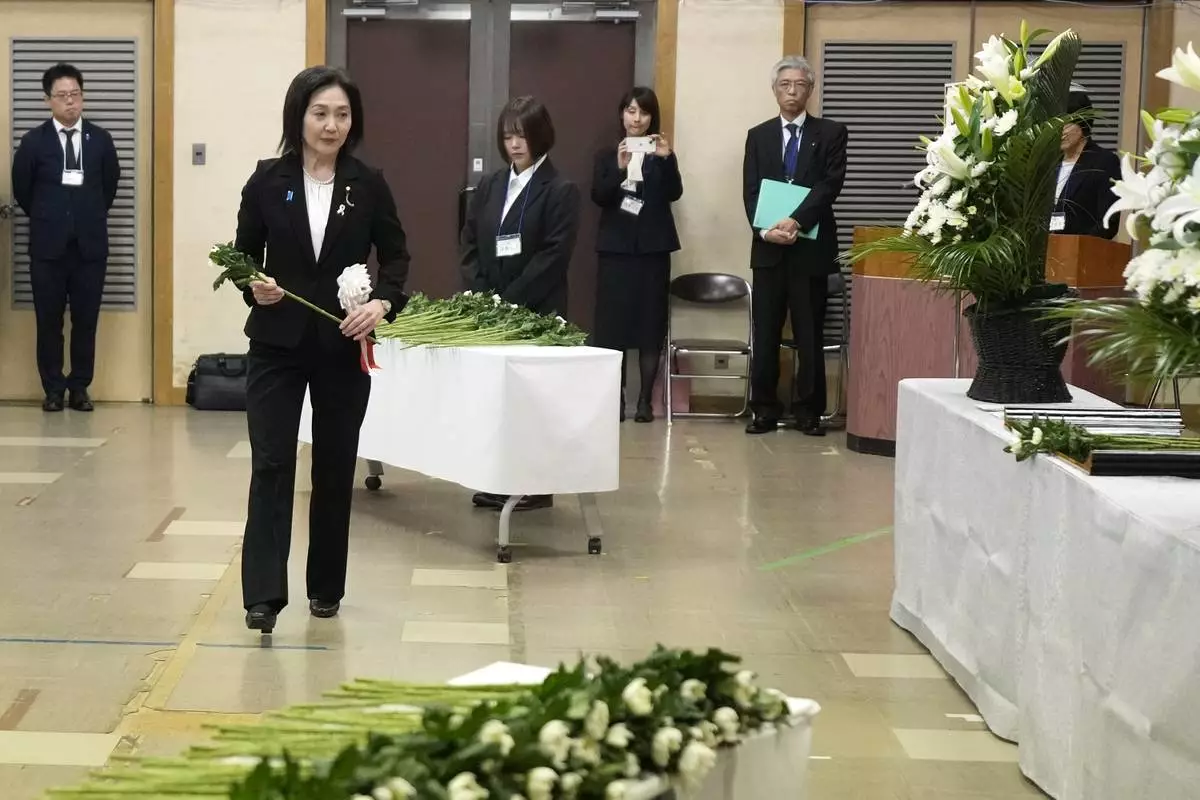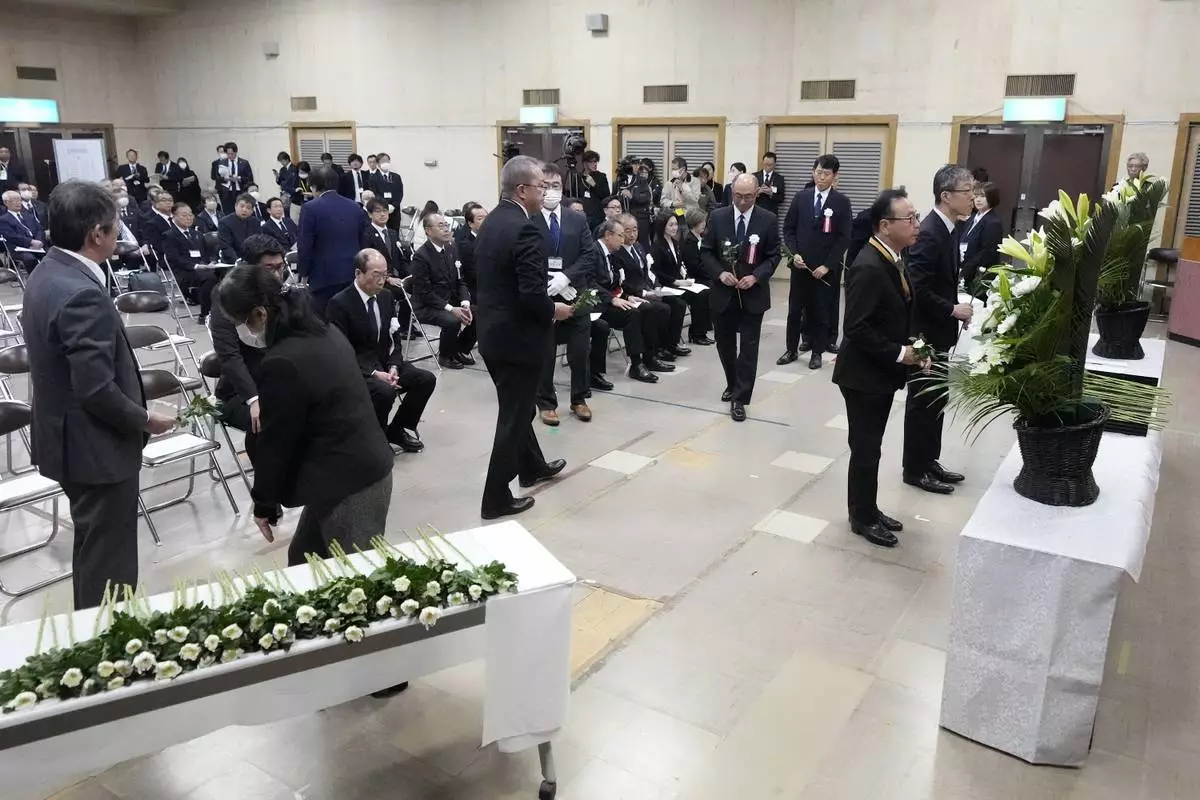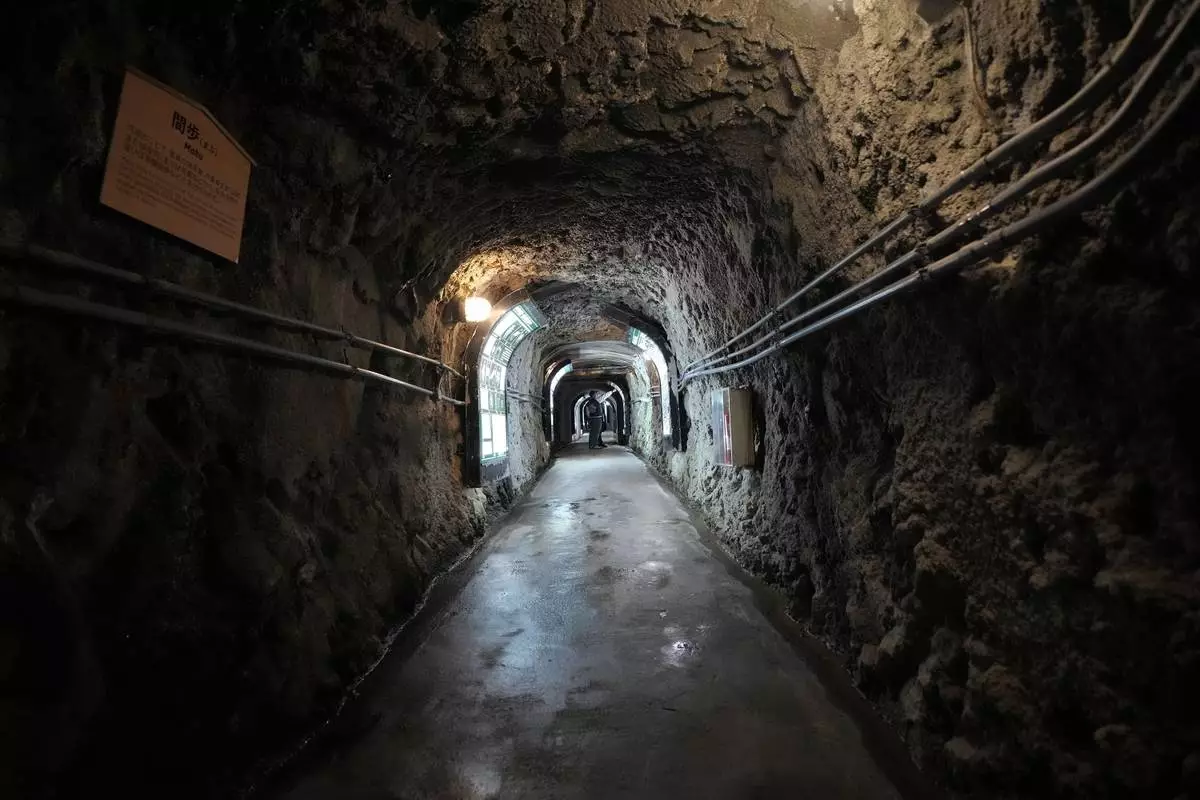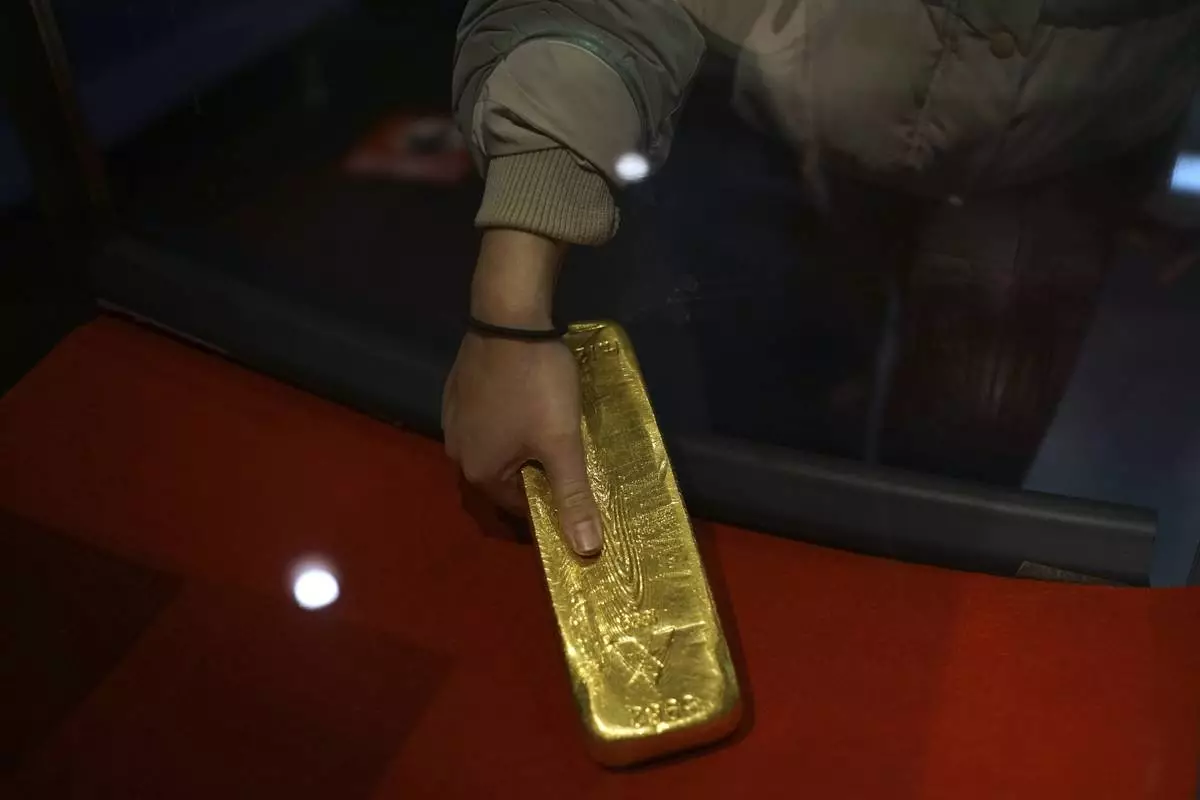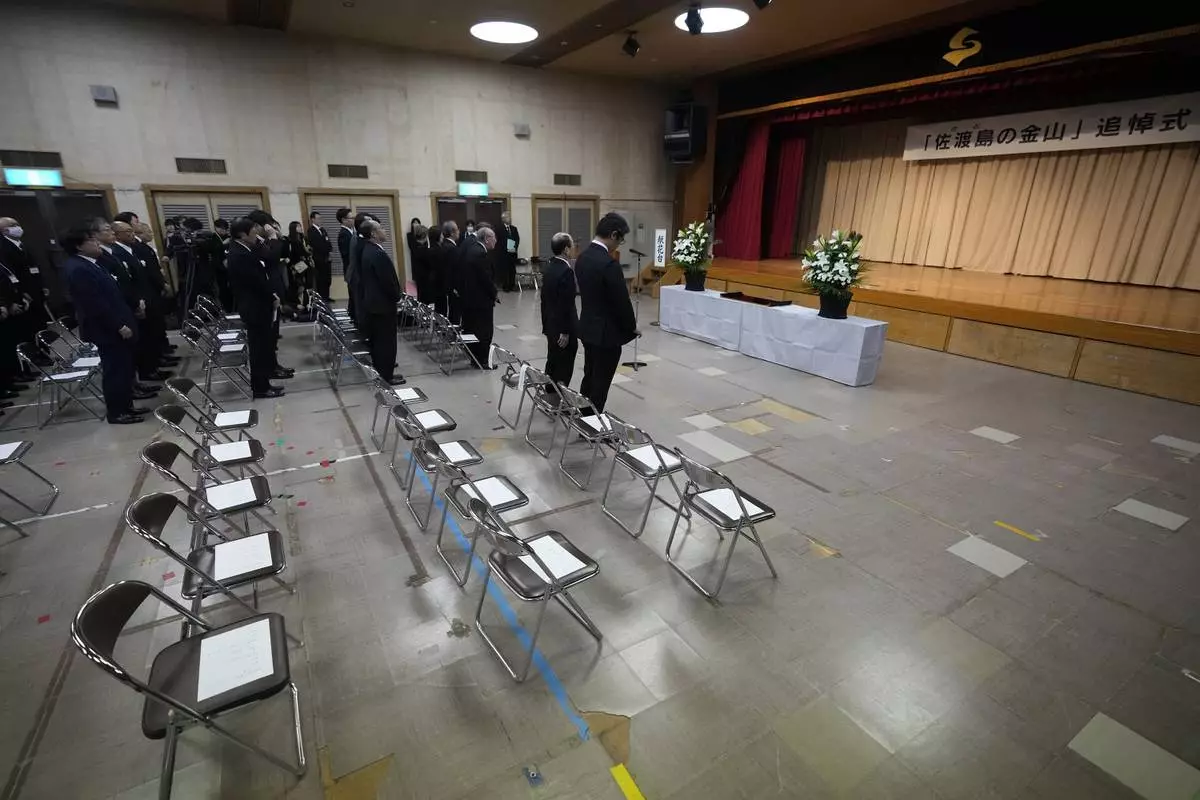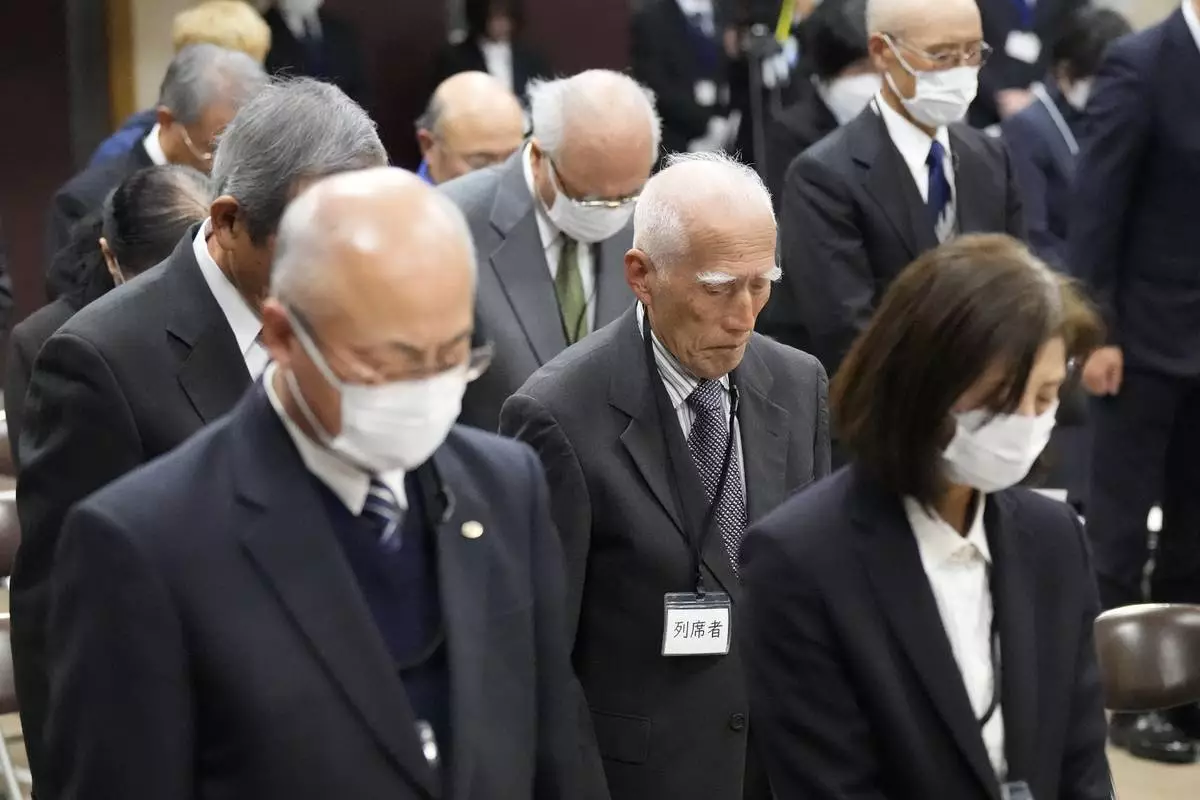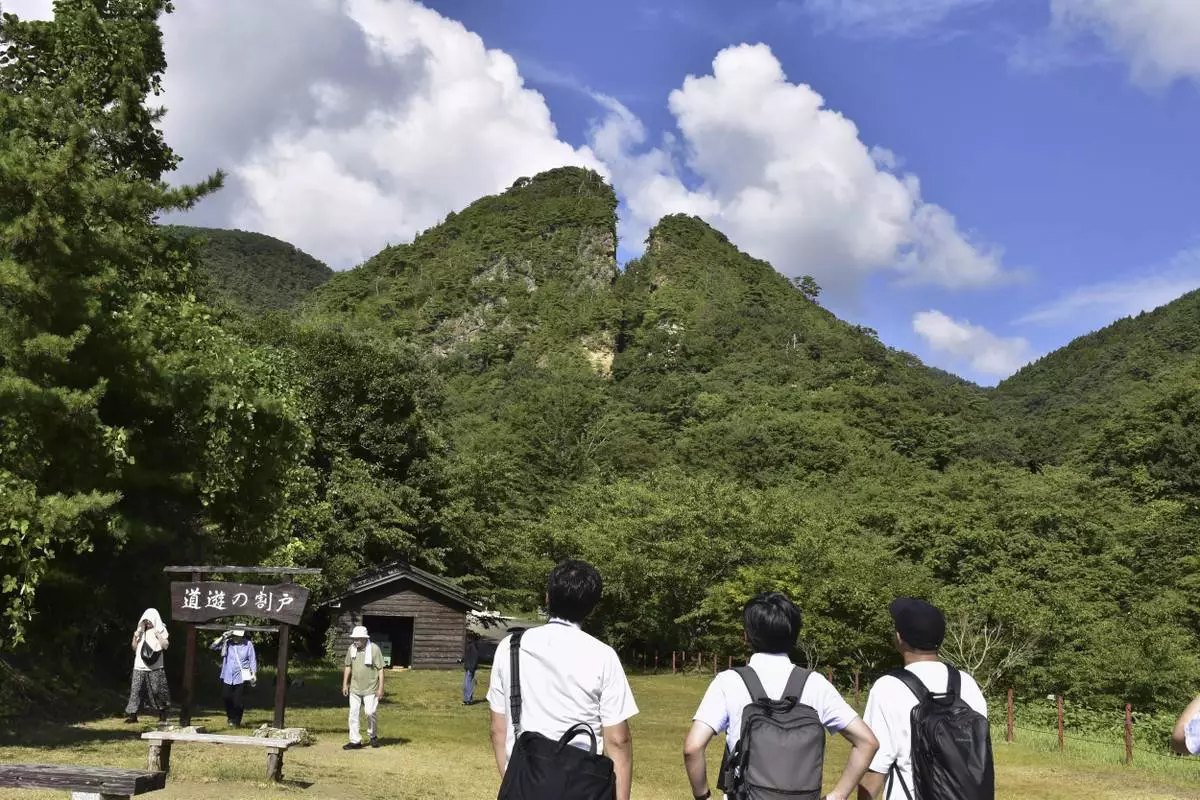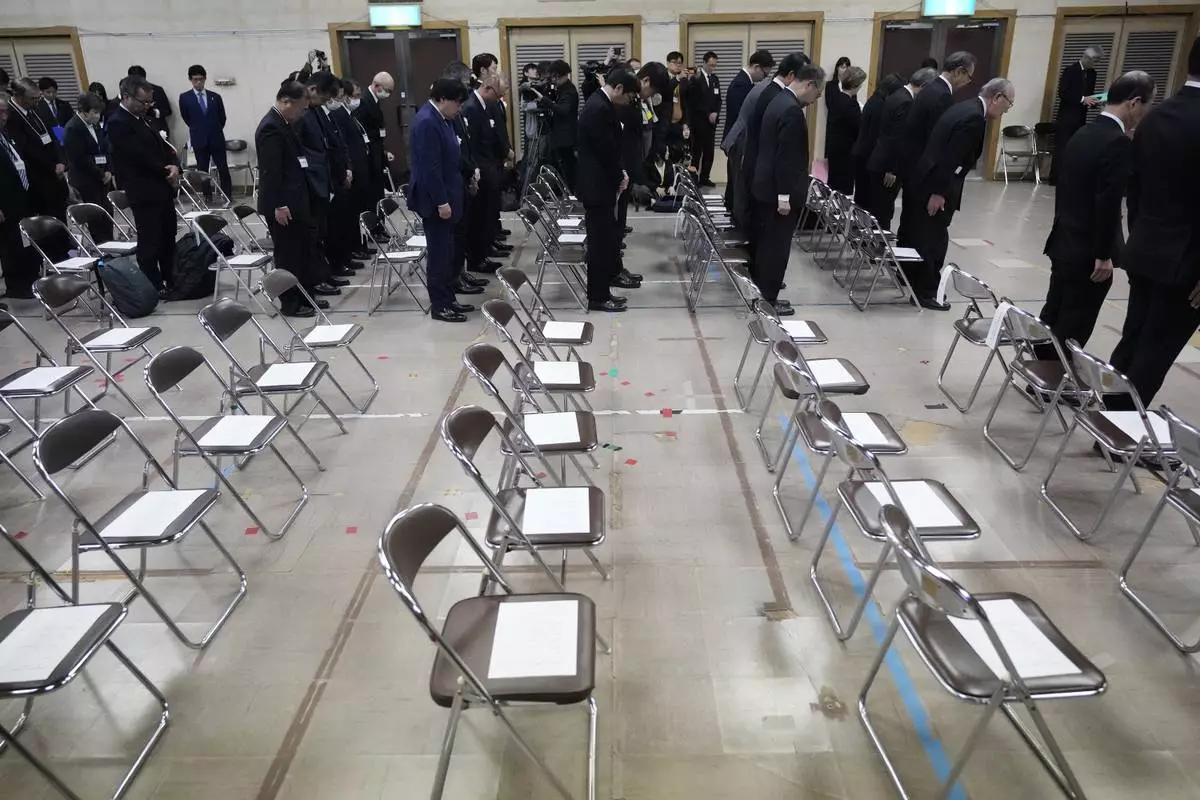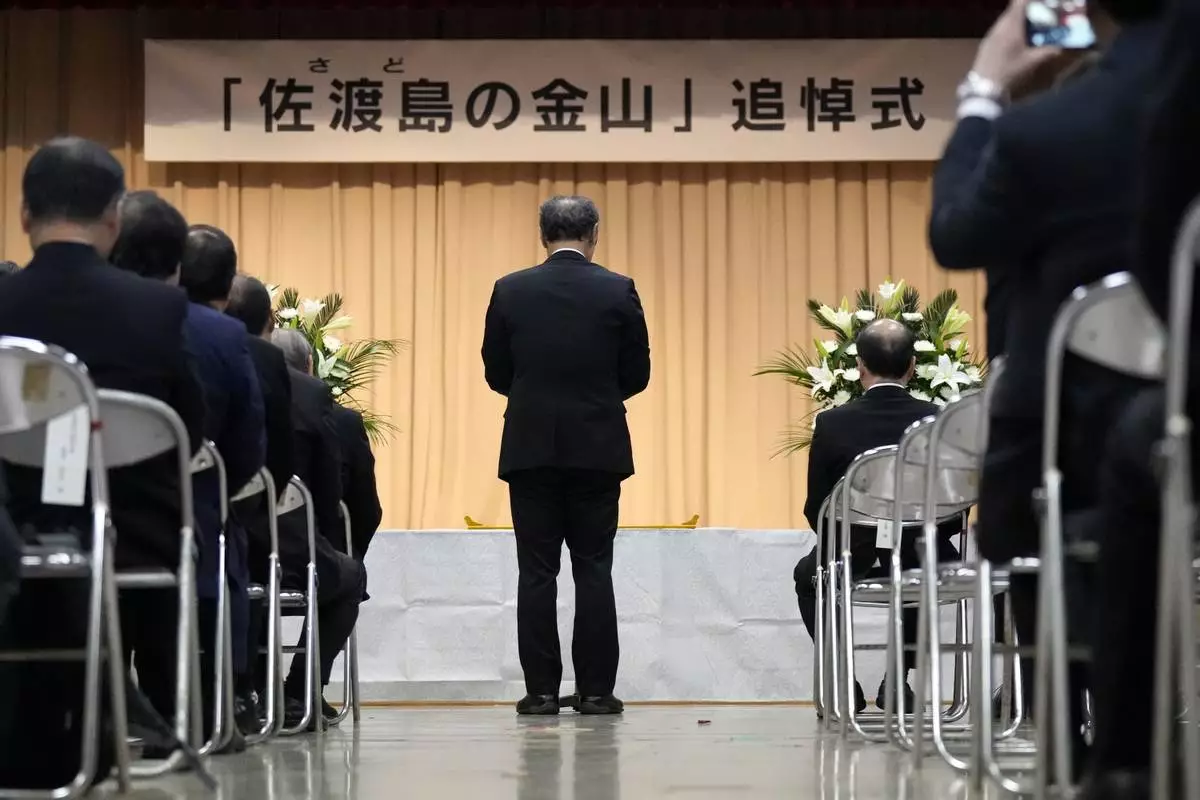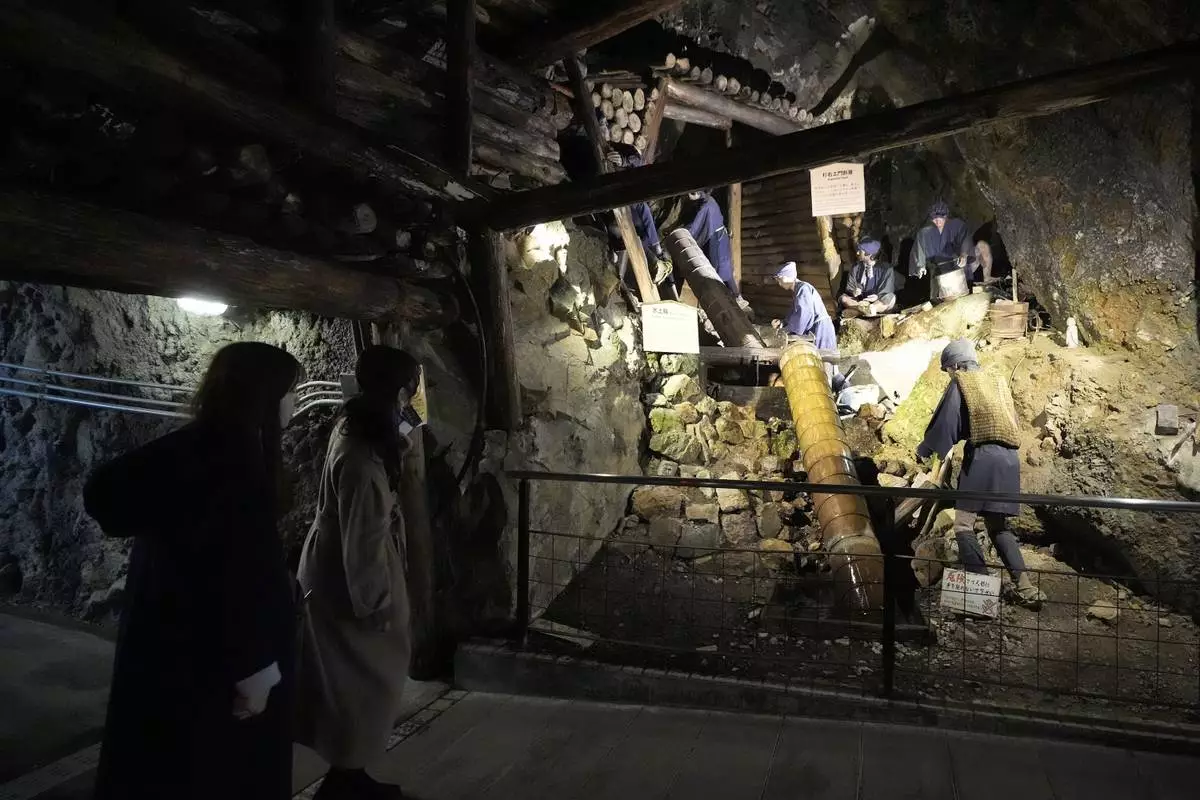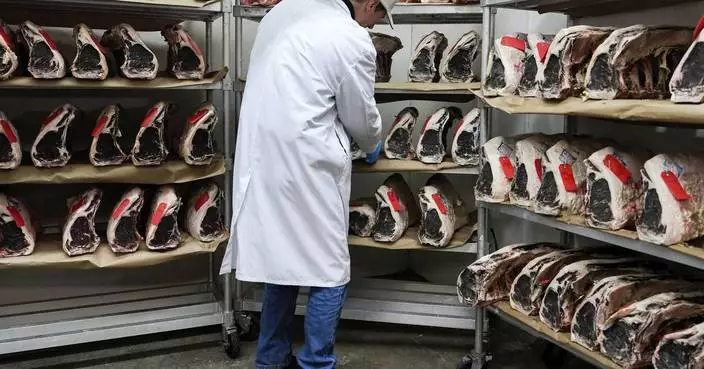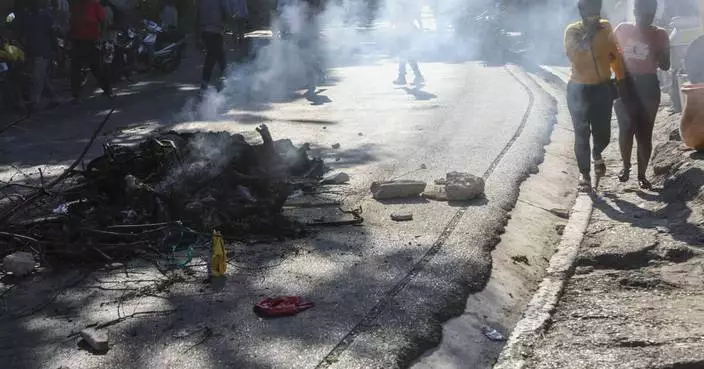UMM AL-FAHM, Israel (AP) — Israel’s yearlong crackdown against Palestinian citizens who speak out against the war in Gaza is prompting many to self-censor out of fear of being jailed and further marginalized in society, while some still find ways to dissent — carefully.
Ahmed Khalefa's life turned upside down after he was charged with inciting terrorism for chanting in solidarity with Gaza at an anti-war protest in October 2023.
The lawyer and city counselor from central Israel says he spent three difficult months in jail followed by six months detained in an apartment. It's unclear when he'll get a final verdict on his guilt or innocence. Until then, he's forbidden from leaving his home from dusk to dawn.
Khalefa is one of more than 400 Palestinian citizens of Israel who, since the start of the war in Gaza, have been investigated by police for “incitement to terrorism” or “incitement to violence,” according to Adalah, a legal rights group for minorities. More than half of those investigated were also criminally charged or detained, Adalah said.
“Israel made it clear they see us more as enemies than as citizens,” Khalefa said in an interview at a cafe in his hometown of Umm al-Fahm, Israel's second-largest Palestinian city.
Israel has roughly 2 million Palestinian citizens, whose families remained within the borders of what became Israel in 1948. Among them are Muslims and Christians, and they maintain family and cultural ties to Gaza and the West Bank, which Israel captured in 1967.
Israel says its Palestinian citizens enjoy equal rights, including the right to vote, and they are well-represented in many professions. However, Palestinians are widely discriminated against in areas like housing and the job market.
Israeli authorities have opened more incitement cases against Palestinian citizens during the war in Gaza than in the previous five years combined, Adalah's records show. Israeli authorities have not said how many cases ended in convictions and imprisonment. The Justice Ministry said it did not have statistics on those convictions.
Just being charged with incitement to terrorism or identifying with a terrorist group can land a suspect in detention until they're sentenced, under the terms of a 2016 law.
In addition to being charged as criminals, Palestinians citizens of Israel — who make up around 20% of the country’s population — have lost jobs, been suspended from schools and faced police interrogations posting online or demonstrating, activists and rights watchdogs say.
It’s had a chilling effect.
“Anyone who tries to speak out about the war will be imprisoned and harassed in his work and education,” said Oumaya Jabareen, whose son was jailed for eight months after an anti-war protest. “People here are all afraid, afraid to say no to this war.”
Jabareen was among hundreds of Palestinians who filled the streets of Umm al-Fahm earlier this month carrying signs and chanting political slogans. It appeared to be the largest anti-war demonstration in Israel since the Oct. 7 Hamas attack. But turnout was low, and Palestinian flags and other national symbols were conspicuously absent. In the years before the war, some protests could draw tens of thousands of Palestinians in Israel.
Authorities tolerated the recent protest march, keeping it under heavily armed supervision. Helicopters flew overhead as police with rifles and tear gas jogged alongside the crowd, which dispersed without incident after two hours. Khalefa said he chose not to attend.
Shortly after the Oct. 7 attack, Israel’s far-right government moved quickly to invigorate a task force that has charged Palestinian citizens of Israel with “supporting terrorism” for posts online or protesting against the war. At around the same time, lawmakers amended a security bill to increase surveillance of online activity by Palestinians in Israel, said Nadim Nashif, director of the digital rights group 7amleh. These moves gave authorities more power to restrict freedom of expression and intensify their arrest campaigns, Nashif said.
The task force is led by Itamar Ben-Gvir, a hard-line national security minister who oversees the police. His office said the task force has monitored thousands of posts allegedly expressing support for terror organizations and that police arrested “hundreds of terror supporters,” including public opinion leaders, social media influencers, religious figures, teachers and others.
“Freedom of speech is not the freedom to incite ... which harms public safety and our security,” his office said in a statement.
But activists and rights groups say the government has expanded its definition of incitement much too far, targeting legitimate opinions that are at the core of freedom of expression.
Myssana Morany, a human rights attorney at Adalah, said Palestinian citizens have been charged for seemingly innocuous things like sending a meme of a captured Israeli tank in Gaza in a private WhatsApp group chat. Another person was charged for posting a collage of children’s photos, captioned in Arabic and English: “Where were the people calling for humanity when we were killed?” The feminist activist group Kayan said over 600 women called its hotline because of blowback in the workplace for speaking out against the war or just mentioning it unfavorably.
Over the summer, around two dozen anti-war protesters in the port city of Haifa were only allowed to finish three chants before police forcefully scattered the gathering into the night. Yet Jewish Israelis demanding a hostage release deal protest regularly — and the largest drew hundreds of thousands to the streets of Tel Aviv.
Khalefa, the city counselor, is not convinced the crackdown on speech will end, even if the war eventually does. He said Israeli prosecutors took issue with slogans that broadly praised resistance and urged Gaza to be strong, but which didn’t mention violence or any militant groups. For that, he said, the government is trying to disbar him, and he faces up to eight years in prison.
“They wanted to show us the price of speaking out,” Khalefa said.
Associated Press writers Tia Goldenberg in Tel Aviv, Israel, Ibrahim Hazboun in Jerusalem, Mahmoud Illean in Umm al-Fahm, and Drew Callister in New York, contributed to this report.
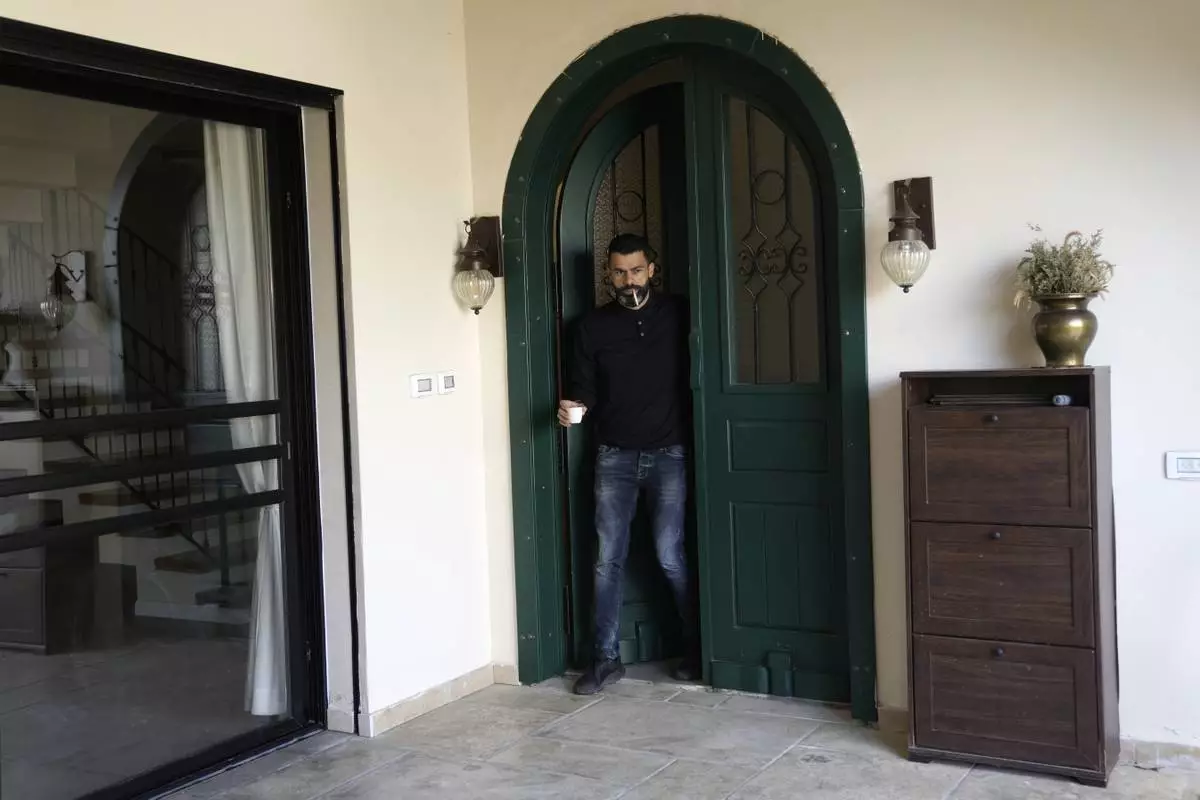
Ahmed Khalefa, a Palestinian citizen of Israel who is charged with incitement to terrorism for demonstrating against the war in Gaza, is seen at home in Umm al-Fahm, Israel, Wednesday, Nov. 20, 2024. (AP Photo/Mahmoud Illean)
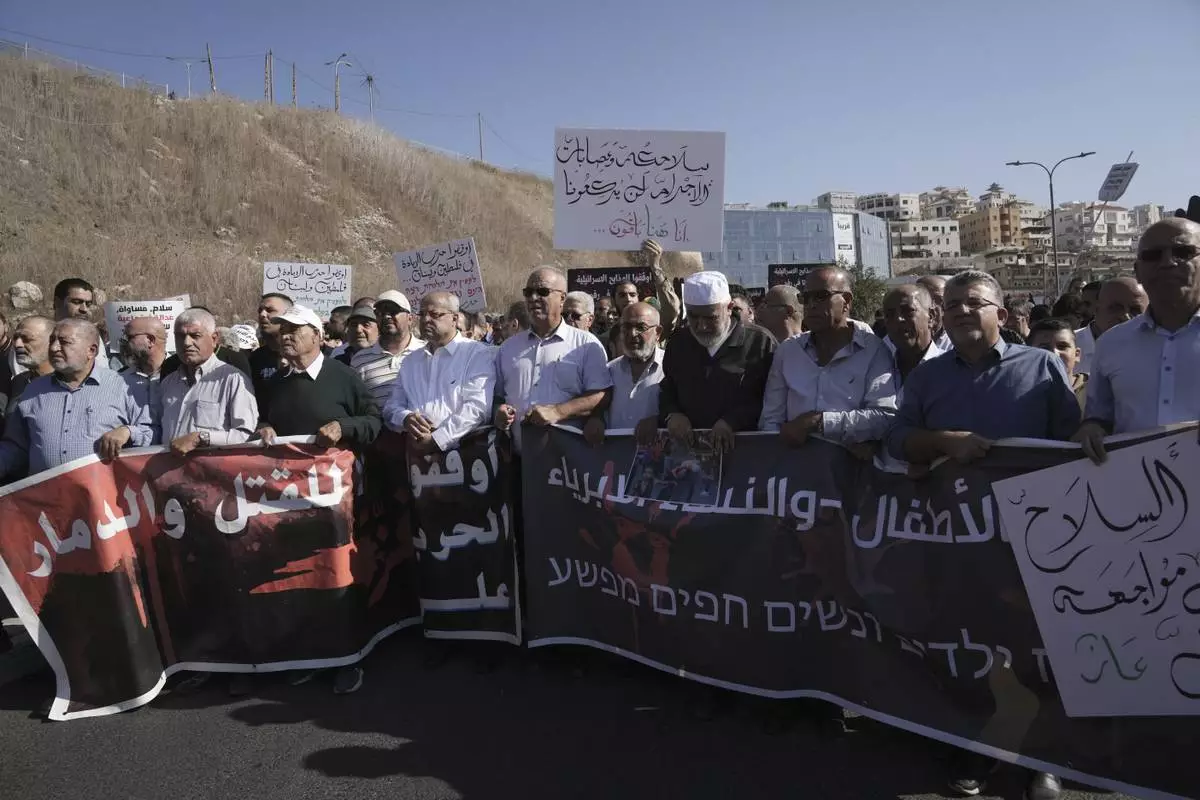
Lawmaker Ahmad Tibi, fifth from left, joins Palestinian citizens of Israel in a march against Israel's military operations in the Gaza Strip, in Umm al-Fahm, Israel, Friday, Nov. 15, 2024. (AP Photo/Mahmoud Illean)
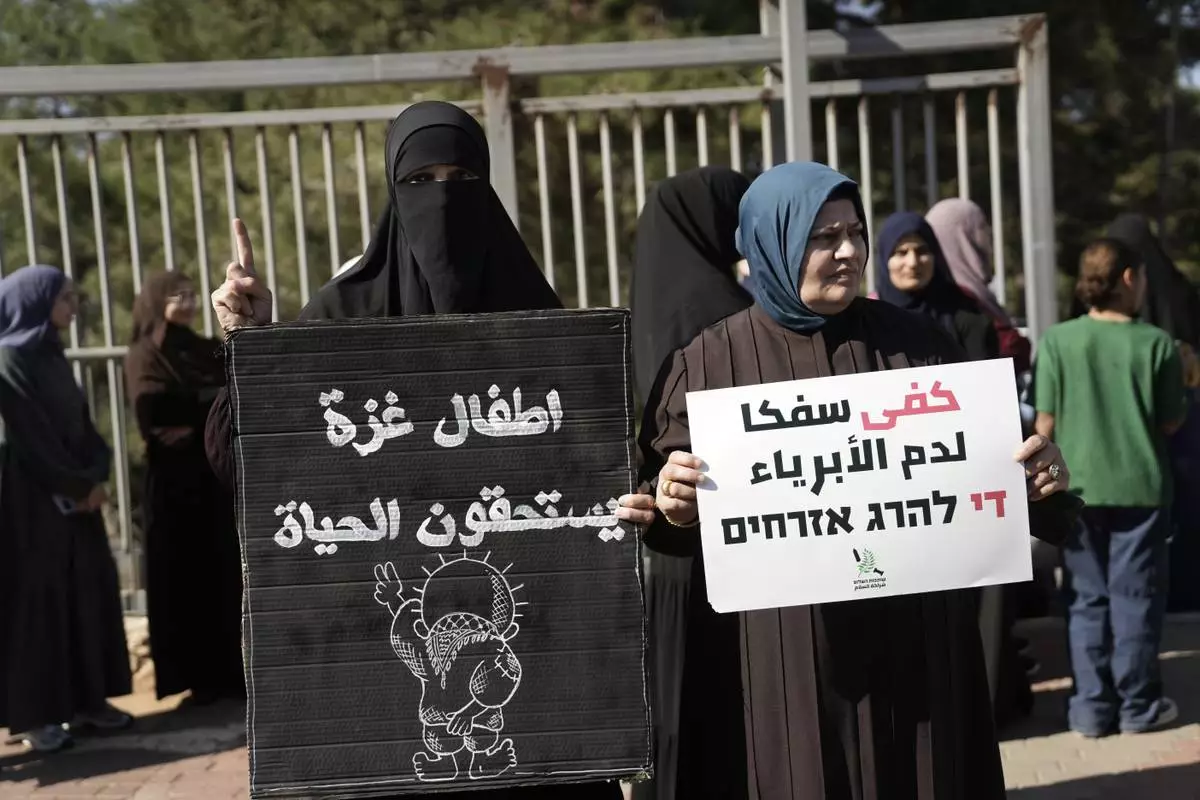
Women hold Arabic placards that read, "Gaza children deserve life," left, and "stop shedding innocent blood," as Palestinian citizens of Israel march against Israel's military operations in the Gaza Strip, in Umm al-Fahm, Israel, Friday, Nov. 15, 2024. (AP Photo/Mahmoud Illean)
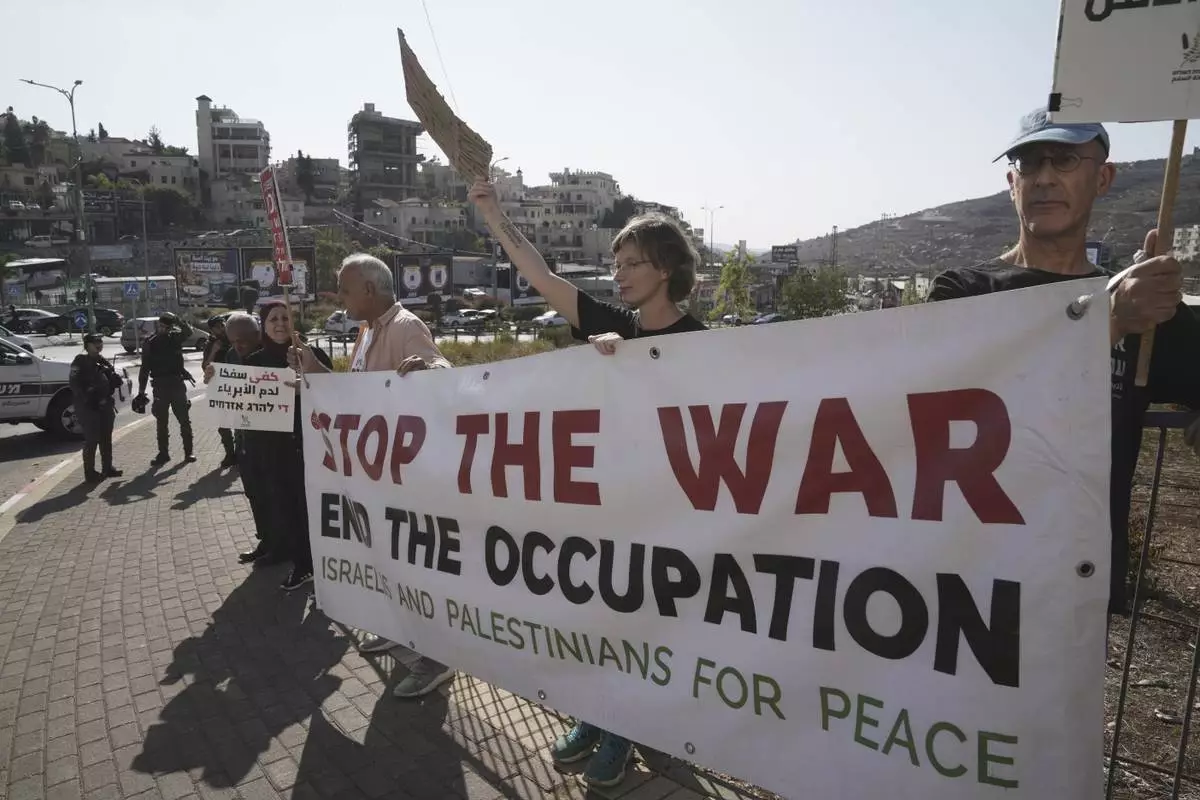
Israelis and Palestinian citizens of Israel protest Israel's military operations in the Gaza Strip, in Umm al-Fahm, Israel, Friday, Nov. 15, 2024. (AP Photo/Mahmoud Illean)
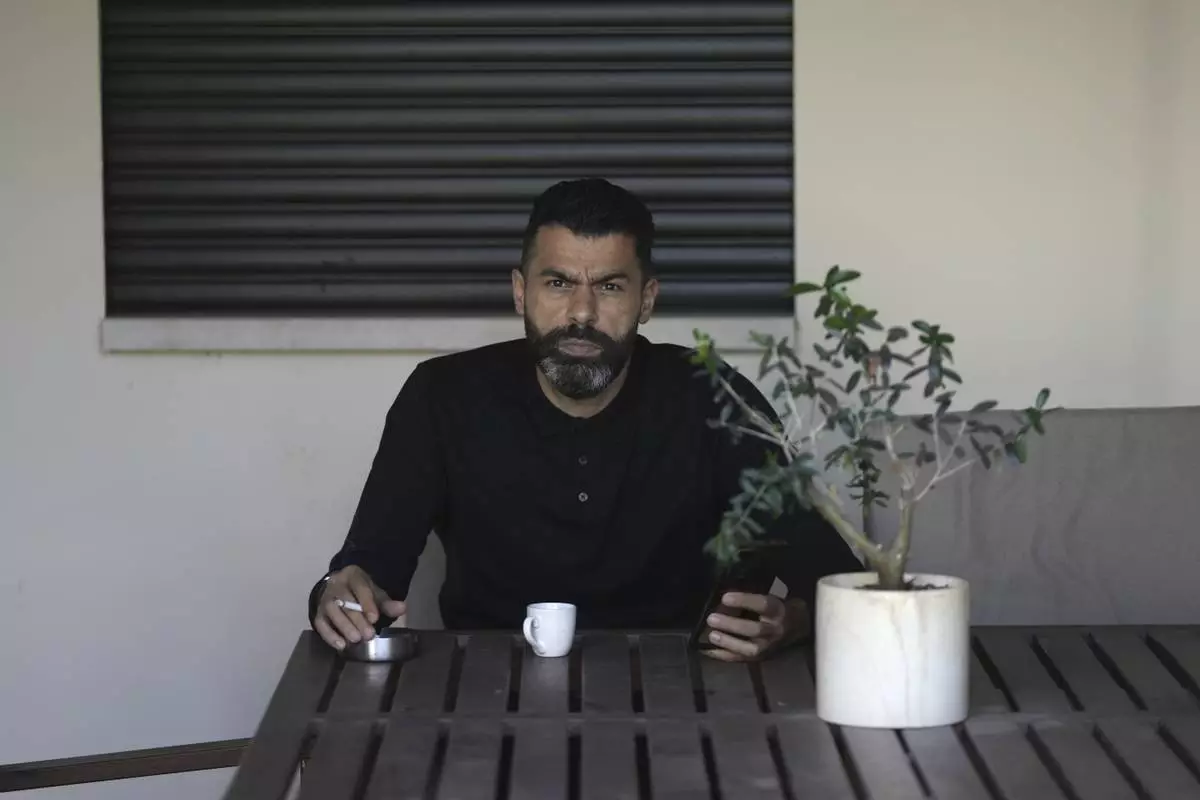
Ahmed Khalefa, a Palestinian citizen of Israel who is charged with incitement to terrorism for demonstrating against the war in Gaza, is seen at home in Umm al-Fahm, Israel, Wednesday, Nov. 20, 2024. (AP Photo/Mahmoud Illean)
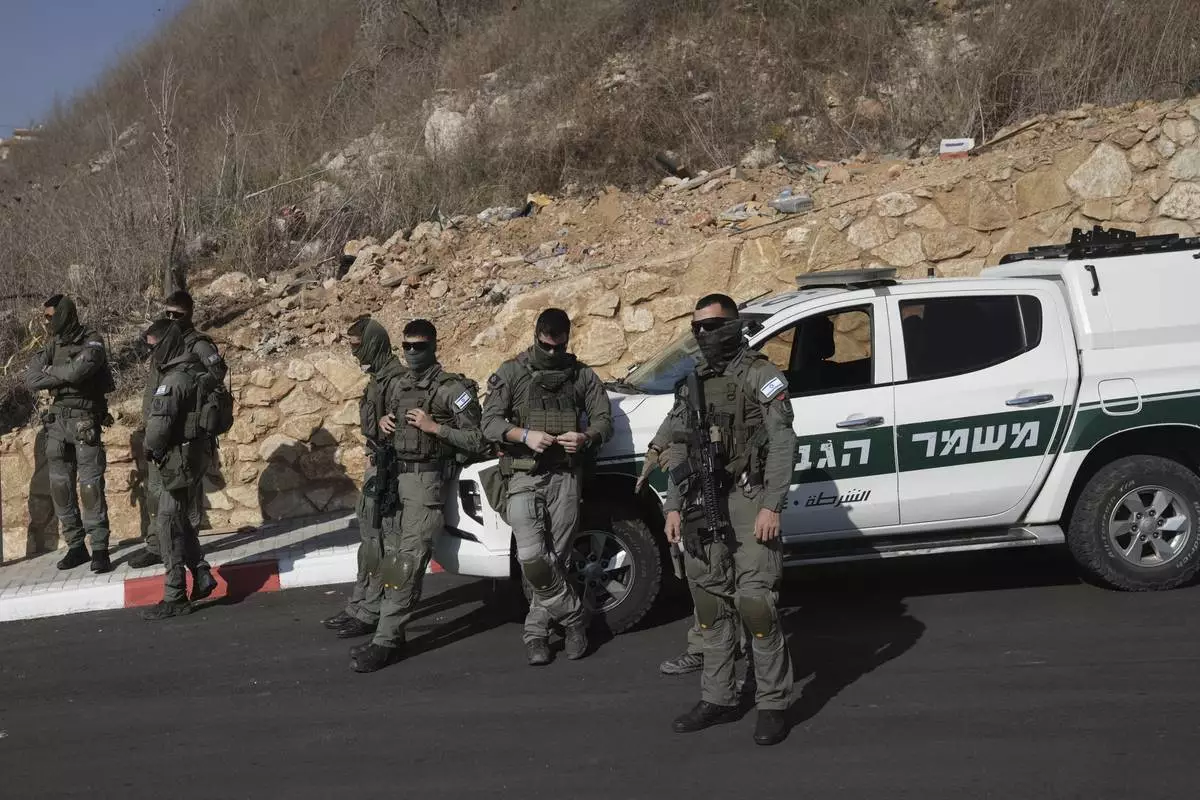
Border Police stand guard as Palestinian citizens of Israel march against Israel's military operations in the Gaza Strip, in Umm al-Fahm, Israel, Friday, Nov. 15, 2024. (AP Photo/Mahmoud Illean)
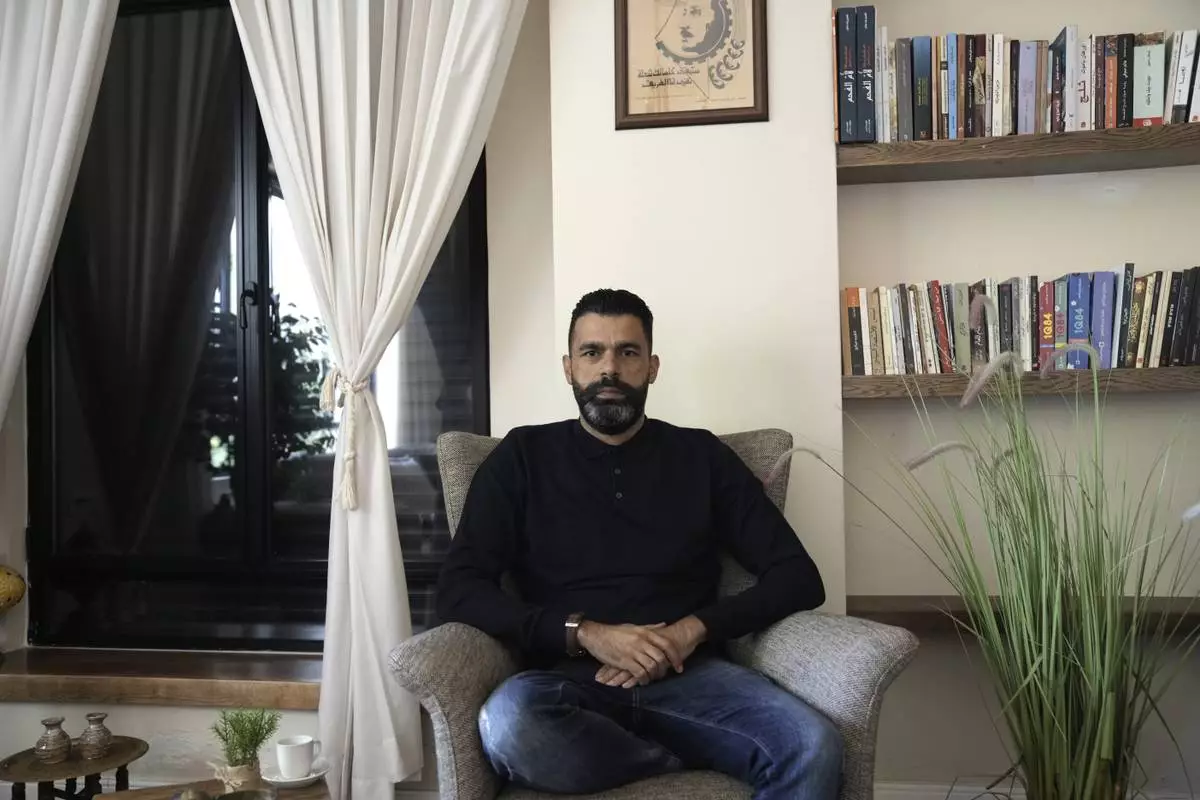
Ahmed Khalefa, a Palestinian citizen of Israel who is charged with incitement to terrorism for demonstrating against the war in Gaza, poses for a portrait at home in Umm al-Fahm, Israel, Wednesday, Nov. 20, 2024. (AP Photo/Mahmoud Illean)
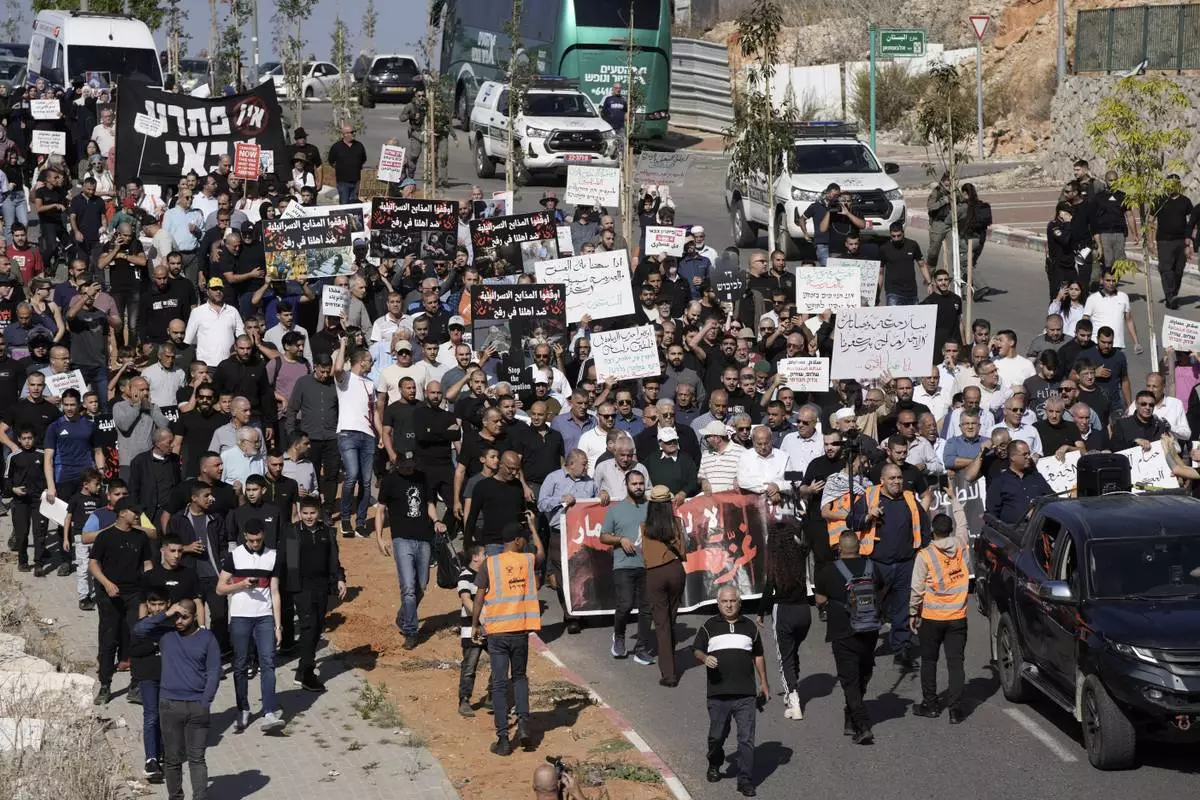
Palestinian citizens of Israel march against Israel's military operations in the Gaza Strip, in Umm al-Fahm, Israel, Friday, Nov. 15, 2024. (AP Photo/Mahmoud Illean
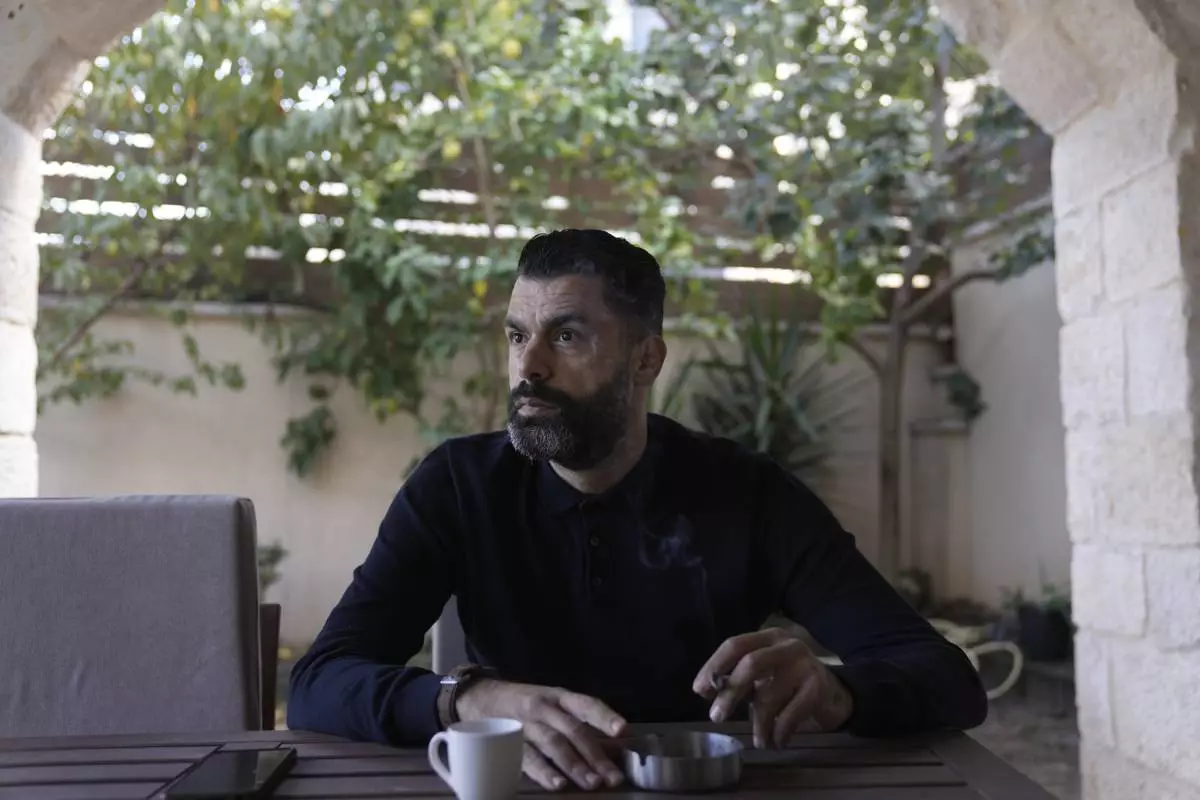
Ahmed Khalefa, a Palestinian citizen of Israel who is charged with incitement to terrorism for demonstrating against the war in Gaza, is seen at home in Umm al-Fahm, Israel, Wednesday, Nov. 20, 2024. (AP Photo/Mahmoud Illean)


